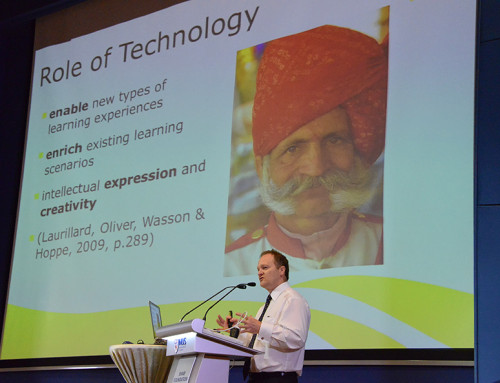Today I wanted to reflect on some of the challenges we face in higher education in relation to using technologies for learning and teaching. I believe the three main challenges centre on digital literacies, affordances and support.
I think we would all agree that literacy is no longer the ability to read and write but now the ability to understand information however presented. In the digital age, we have a wider range of modes and spaces to express our ideas (e.g. facebook, twitter, blogs, etc) and each space has its own language. In relation to higher education, both staff and students have a wide range of skills and languages that influence any learning and teaching transaction. We can’t assume students have all the skills to interact in a digital age, and the digital literacy knowledge of the teacher is important throughout the semester to enhance the learning experience. New literacies allow us to teach more effectively in a digital age and enable us to interact effectively in a digital age by accessing knowledge and connecting with others. We need to view our learning of literacies as a life-long journey due to the changing nature of the landscape.
A second challenge for teachers is knowing how to match the affordances of technologies with teaching and learning. Affordances are the ‘action possibilities’ of the space or technology and a knowledge of the affordances of different technologies will assist our teaching. Being conversant with the affordances of technologies enables us to think about learning outcomes and assessment and use the technologies appropriately to create learning opportunities for our students. It is also important to realise that our beliefs about teaching and learning and technologies affect how we use them.
A third challenge is managing time/space and workloads in the academic environment in relation to developing digital literacies and exploring the affordances of technologies that enable rich opportunities. The challenge for all academics is to make it part of their own learning and practice which means that a personalised professional development programme needs to occur. This means being aware of what support is available at the university, knowing what infrastructure is in place, getting involved in projects, professional organisations and experimenting with technology in learning and teaching.






Leave A Comment